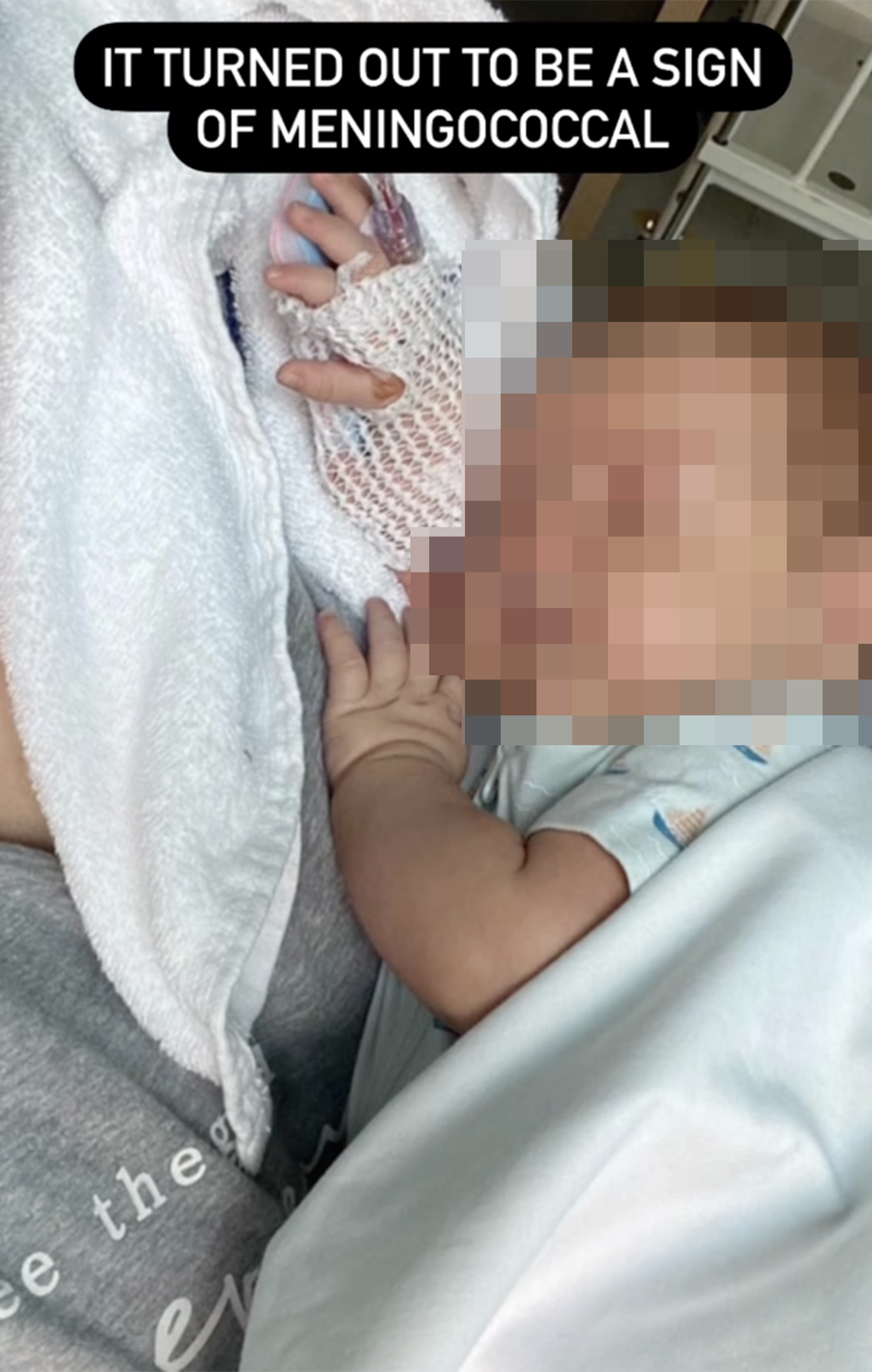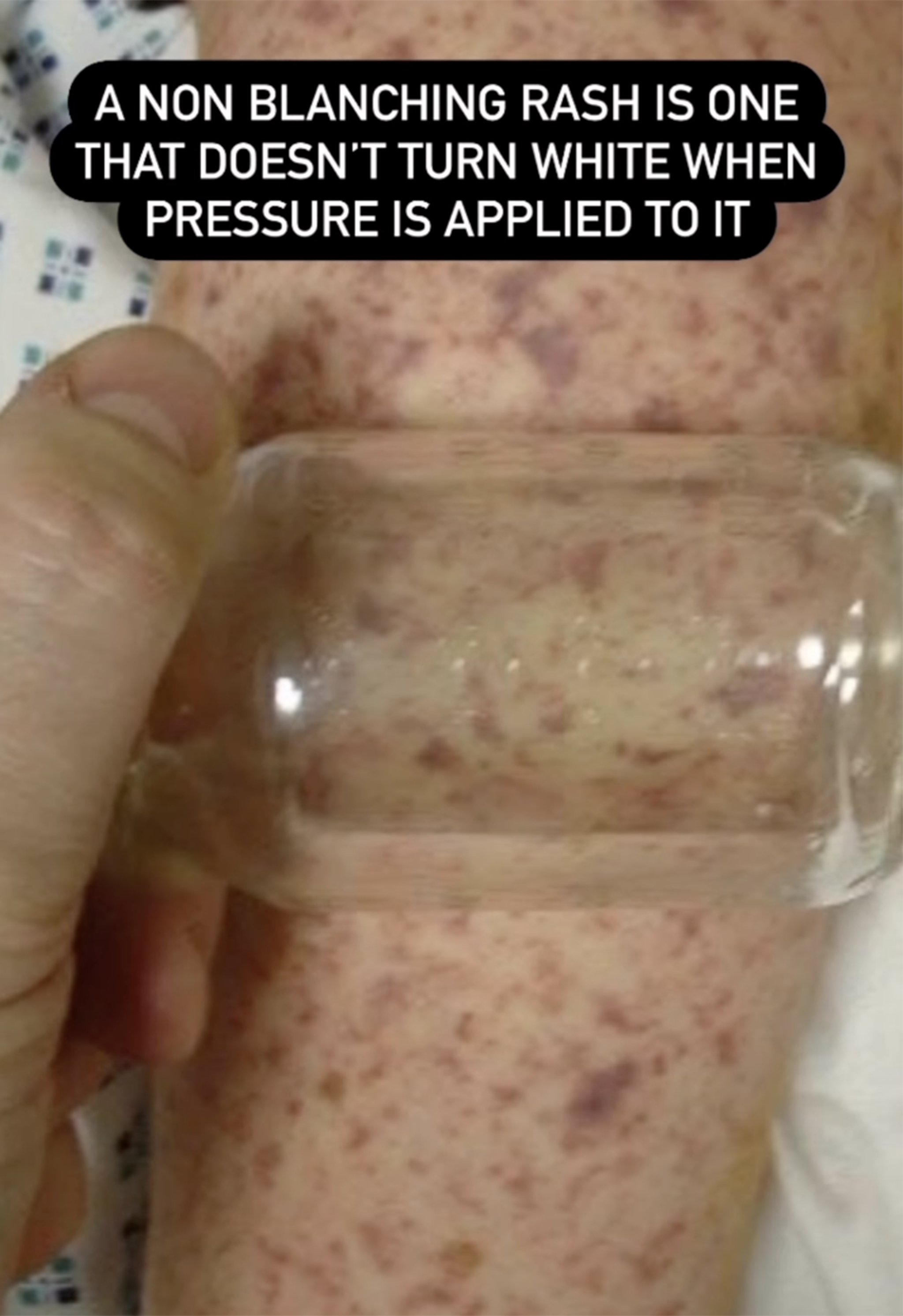
A mother has given an urgent warning to parents after a small rash on her newborn turned out to be a sign of meningitis.
The new mum first noticed the small mark did not turn white when she applied pressure to the area.
After taking the baby to the hospital, she discovered that the mark was an early sign of meningitis.

Tiny Hearts Education, an Australian parenting group, shared the mum’s story on Instagram to warn other parents about seemingly harmless blemishes.
They advised parents to roll a clear glass across the rash or mark to see if it turns white when pressure is applied.
If it does not turn white, it could be a sign of bleeding underneath the skin.
They said: “If the rash turns white that means it blanches. A non-blanching rash doesn’t turn white when pressed.
“If the rash is non-blanching it means there is bleeding beneath the skin and there are tests that should be done to rule out anything serious causing this.”

There are several conditions which can cause bleeding under the skin, according to the account including: meningococcal, Group A Strep and immune thrombocytopenia.
What is meningitis?
Meningitis is the term used to describe when the membranes which protect the brain and spinal cord become inflamed.
This can be caused by a virus or bacteria, with the former being the most common.
Bacterial meningitis can cause blood poisoining (sepsis) and in turn lead to severe brain damage, amputations and, in some cases, death, according to the NHS.
While viral meningitis does not generally lead to septicemia, it can lead to life-changing side-effects.
What are the symptoms of meningitis and sepsis?
The NHS says to look out for the following symptoms:
- a high temperature
- cold hands and feet
- vomiting
- confusion
- breathing quickly
- muscle and joint pain
- pale, mottled or blotchy skin (this may be harder to see on brown or black skin)
- spots or a rash (this may be harder to see on brown or black skin)
- headache
- a stiff neck
- a dislike of bright lights
- being very sleepy or difficult to wake
- fits (seizures)
Babies may also:
- refuse feeds
- be irritable
- have a high-pitched cry
- have a stiff body or be floppy or unresponsive
- have a bulging soft spot on the top of their head
Someone with meningitis or sepsis can get a lot worse very quickly.
Call 999 for an ambulance or go to your nearest A&E immediately if you think you or someone you look after could have meningitis or sepsis.







